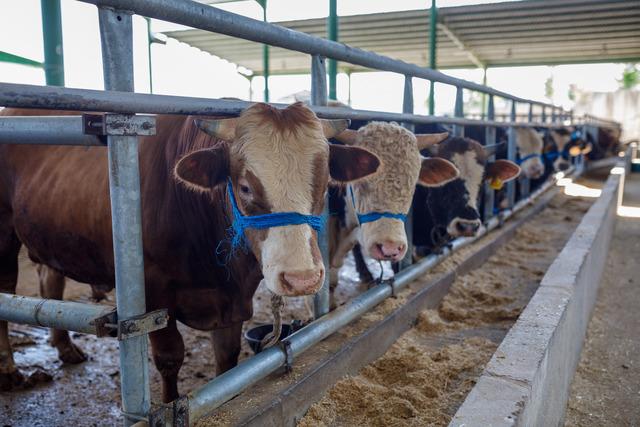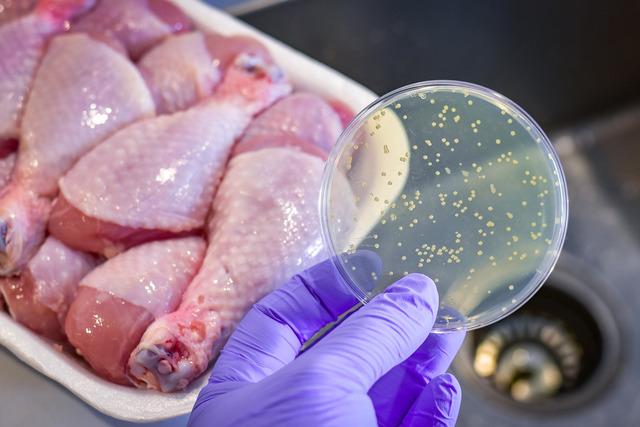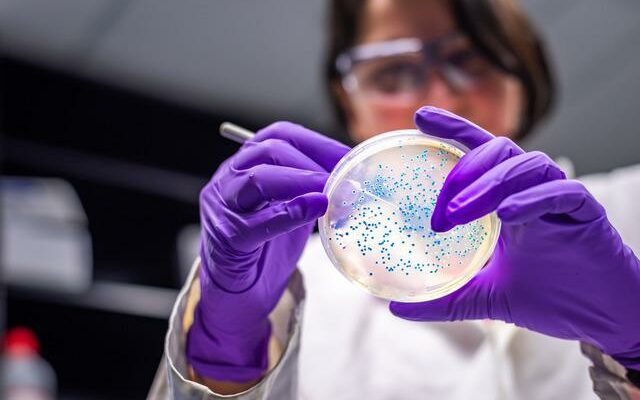President of the Infectious Diseases Association, Prof. Dr. Mehmet Ceyhan said that ‘salmonella’ bacteria is seen more frequently in the summer months. Prof. Dr. Ceyhan said, “Salmonella is actually a very common bacterium. Because it is transmitted from many sources. It is a bacterium found in the feces of both pets, care animals and many other animals you can think of. It can be transmitted that way, especially when the meat of these animals is consumed. Sometimes it is transmitted through water and major epidemics occur. “It can sometimes be transmitted through food and occur as small outbreaks among restaurant customers or household members who consume that food, but it is more common, especially in the summer months,” he said.
‘A SOCIAL PROBLEM’
Prof. said that Salmonella disease is a social problem and there are groups at risk. Dr. Ceyhan said, “Some groups are at greater risk. Children under the age of 5 are the most prominent. Children in the first year of life are also at risk, especially when they are not breastfed. People over the age of 65 or whose immunity is suppressed due to a chronic disease or medication they use are also in the risk group. As such, we are talking about a large part of the society. It is also transmitted to other people, but it sometimes has a mild course. Therefore, it is not a disease that has many cases. For example, there are no figures for the whole world, but there are approximately 1 million 350 cases every year in the United States. “There are 1,000 cases. It is estimated that there are 420 deaths. Many cases are not diagnosed and therefore it is a social problem.”
‘IT CANNOT BE DETECTED EVEN IN TESTS’

Underlining that it is a bacterium that can be transmitted from many foods, especially salads and meats consumed without cooking and adequate cleaning, Prof. Dr. Ceyhan said, “Meat sold in markets goes through certain checks, but it is a bacteria that can easily be overlooked and cannot even be detected in tests. Therefore, if you buy any product such as meat, chicken, fish or eggs, not just the meat slaughtered during Eid al-Adha, We need to consider that it may be contaminated with salmonella. During the cooking of meat, chefs on television channels naturally give more delicious recipes; such as rare meat, slightly rare, medium rare meat. These are always risky in terms of salmonella, but also other bacterial contamination. “The best thing is to use a meat thermometer and measure it with it. If you can measure it, the internal temperature of the meat should not be below 65 degrees. This means medium or well-done meat. If we do not have a thermometer, the whole meat should be expected to turn a light brown, grayish color,” he said.

Emphasizing that meat spoils very quickly, especially in the summer months, Prof. Dr. Mehmet Ceyhan said that raw meat can remain on the counter for a maximum of 1 hour and cooked meat can remain on the counter for a maximum of 2 hours, and there may be a risk of contamination for longer periods. Prof. Dr. Mehmet Ceyhan explained that salmonella bacteria appear in a short time in food-borne food poisoning, and that there is an incubation period between 6 hours and 6 days, and that the disease begins with diarrhea, abdominal pain and fever.
‘THINK AS IF THE VICTIM HAS SALMONELLA BACTERIA’

Prof. Dr. Mehmet Ceyhan made suggestions for Eid-al-Adha and said, “Think as if there is ‘salmonella bacteria’ in the sacrifice you bought. Because the live animal goes through veterinary control, but the veterinarian cannot check whether there is bacteria in every part of the meat of the live animal. Therefore, after cutting the meat, be sure to touch it.” It is necessary to pay attention to cleanliness and ensure hand hygiene. It is necessary to clean the tools used immediately. After one sacrifice is finished, it is necessary to be careful after moving on to the second animal. It is important to clean the wood and knives used when chopping another animal. “When cooking, it should be consumed as well-cooked meat as possible, paying attention to the temperatures I mentioned. It is necessary to put it in the refrigerator with its lid closed and then reheat it at the same temperatures,” he said. (DHA)

